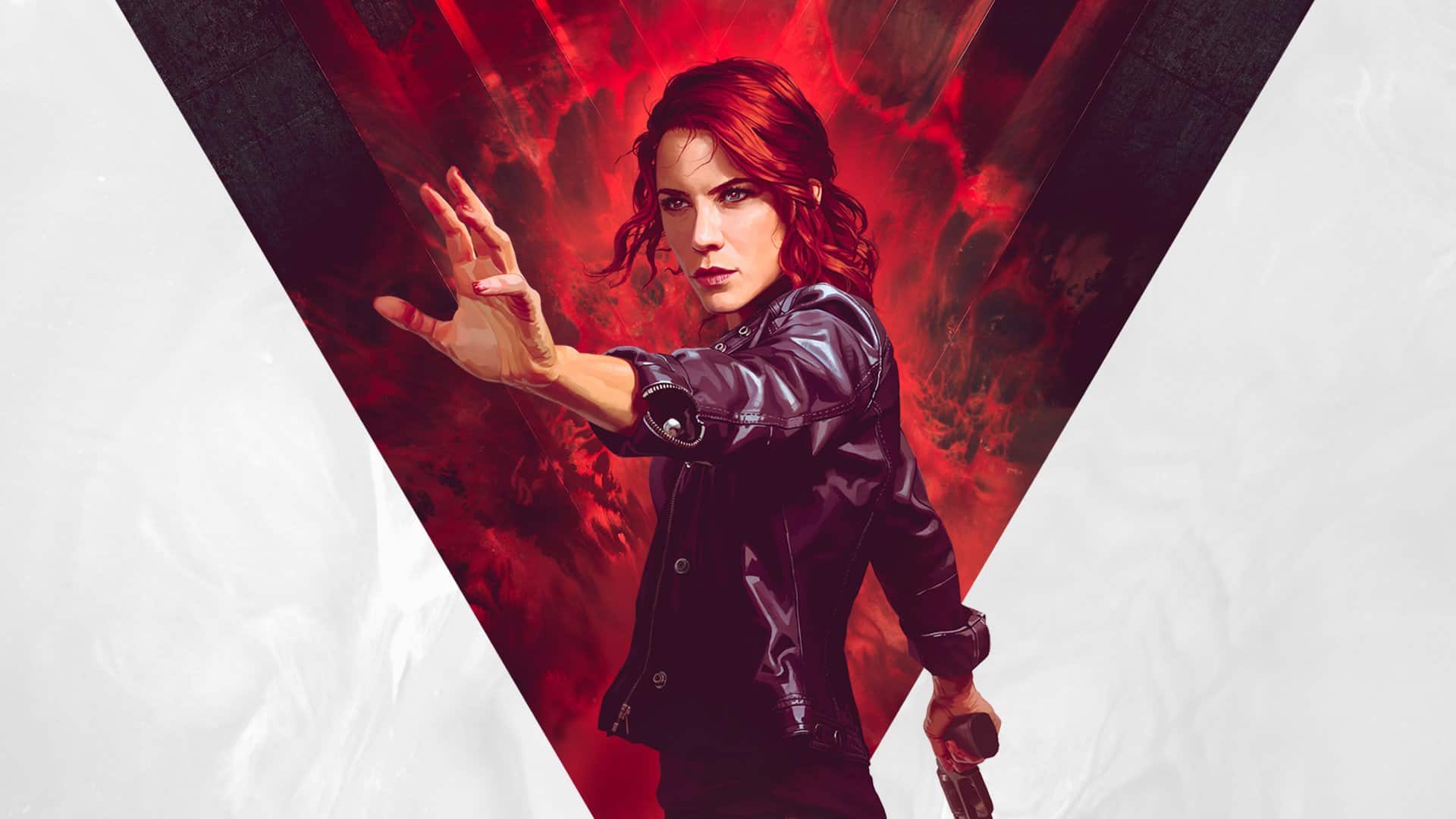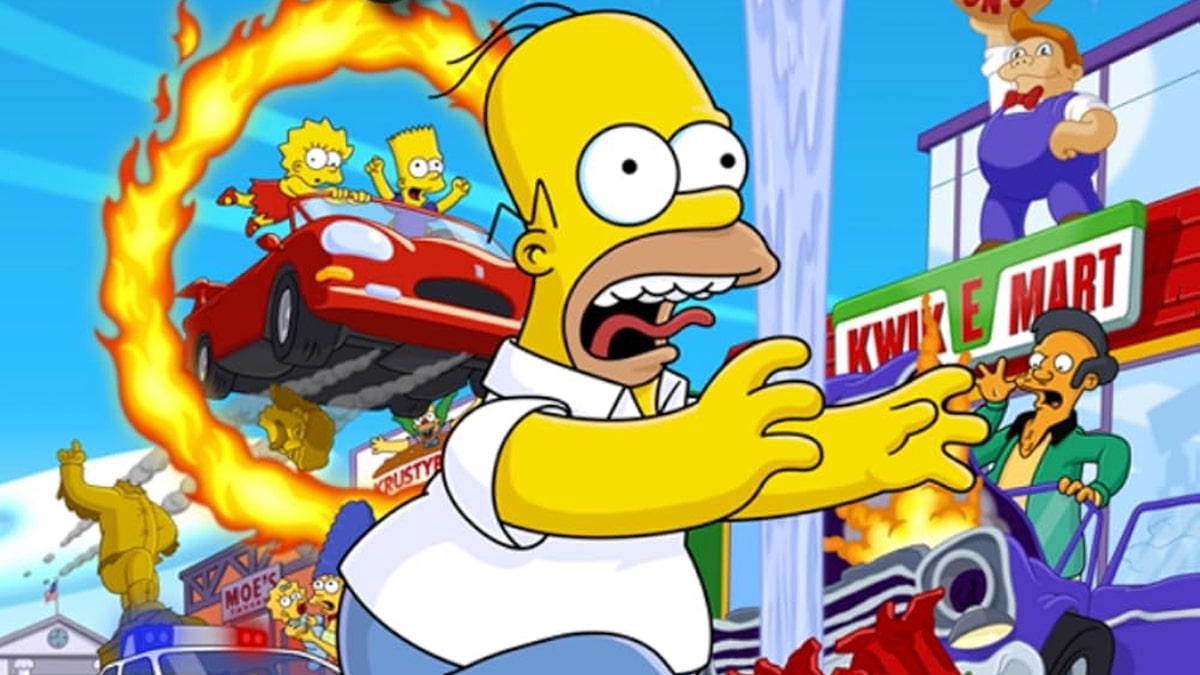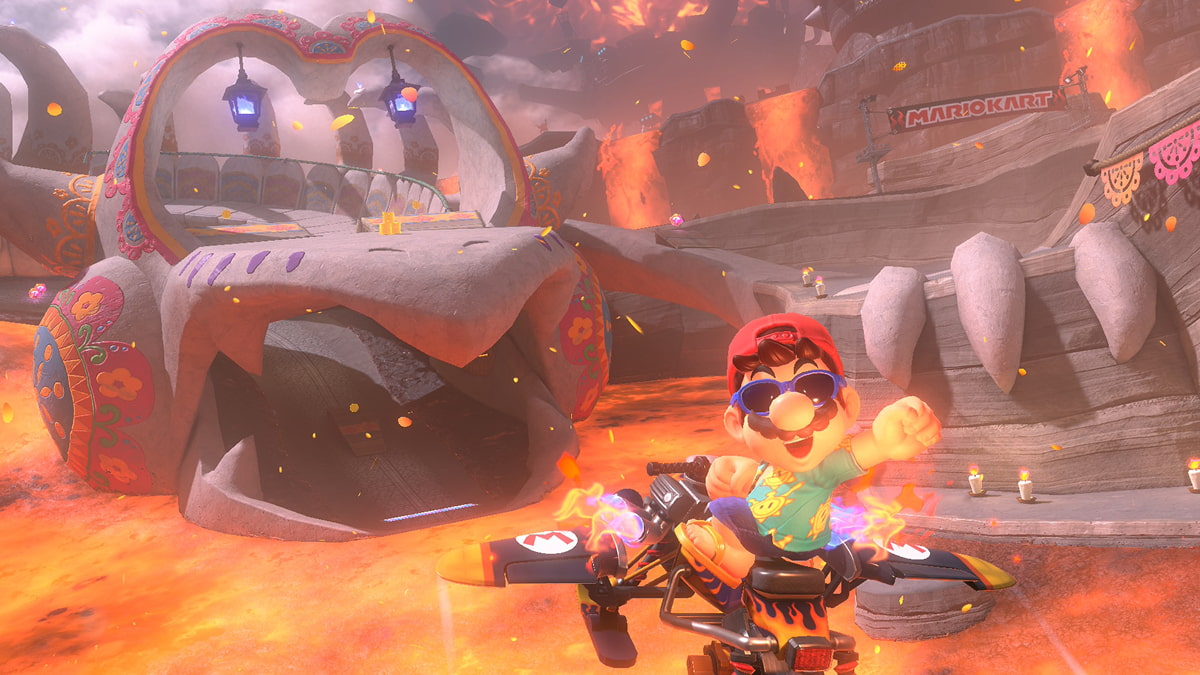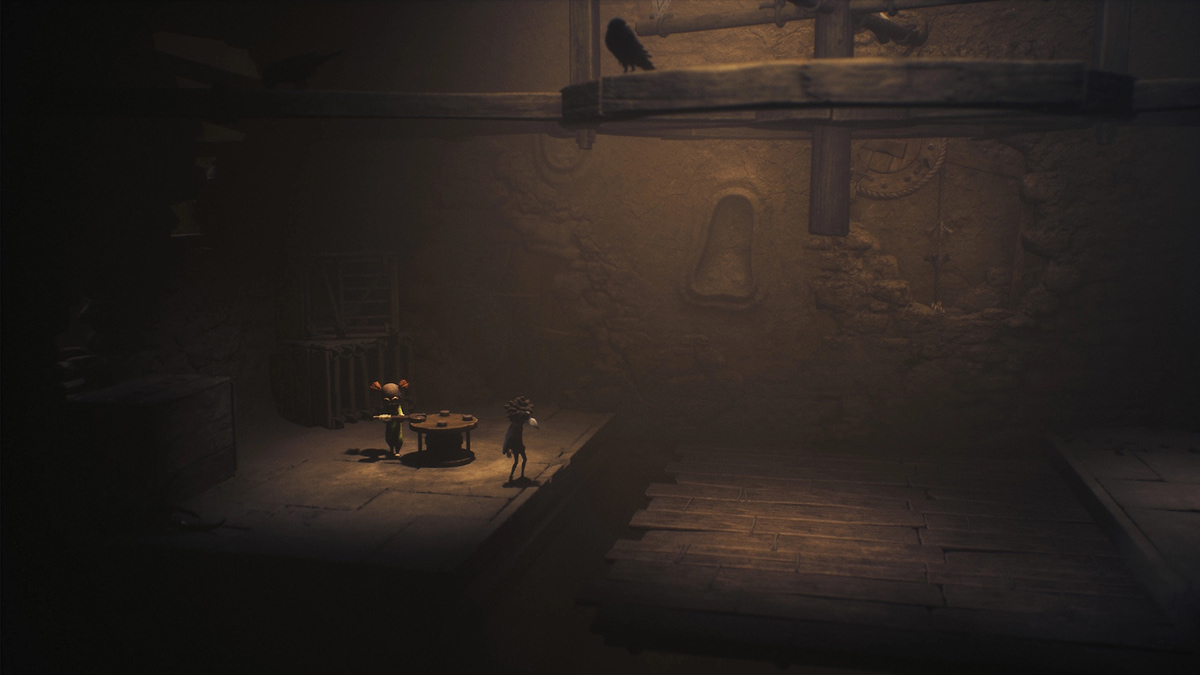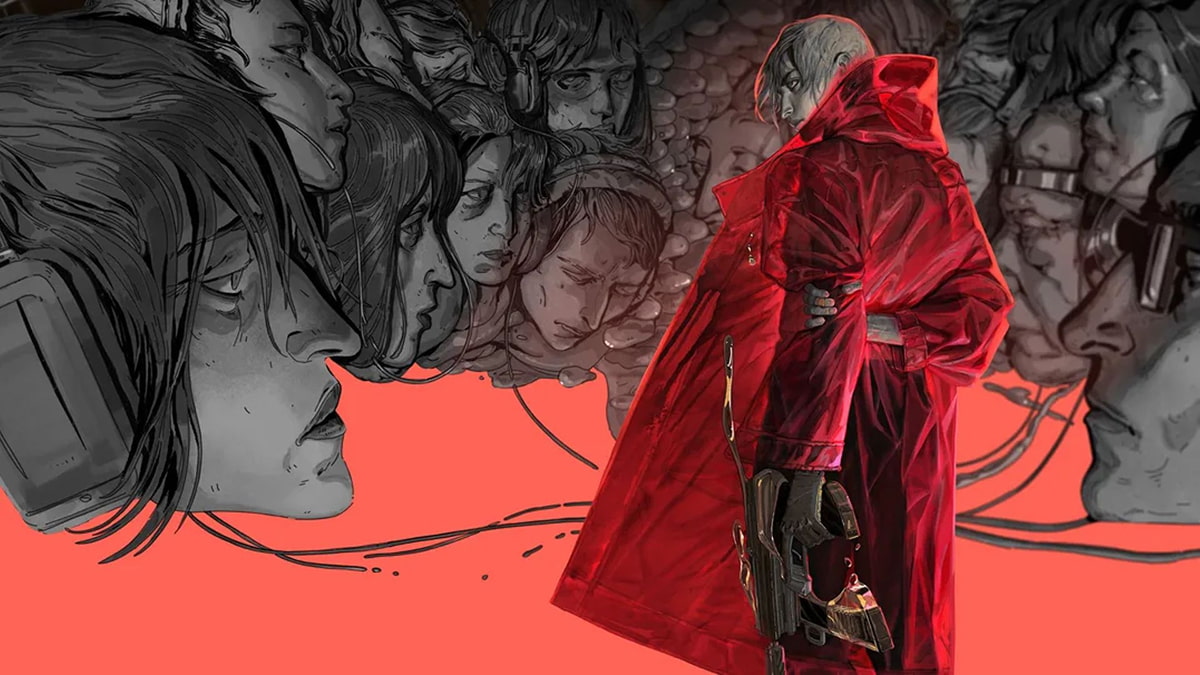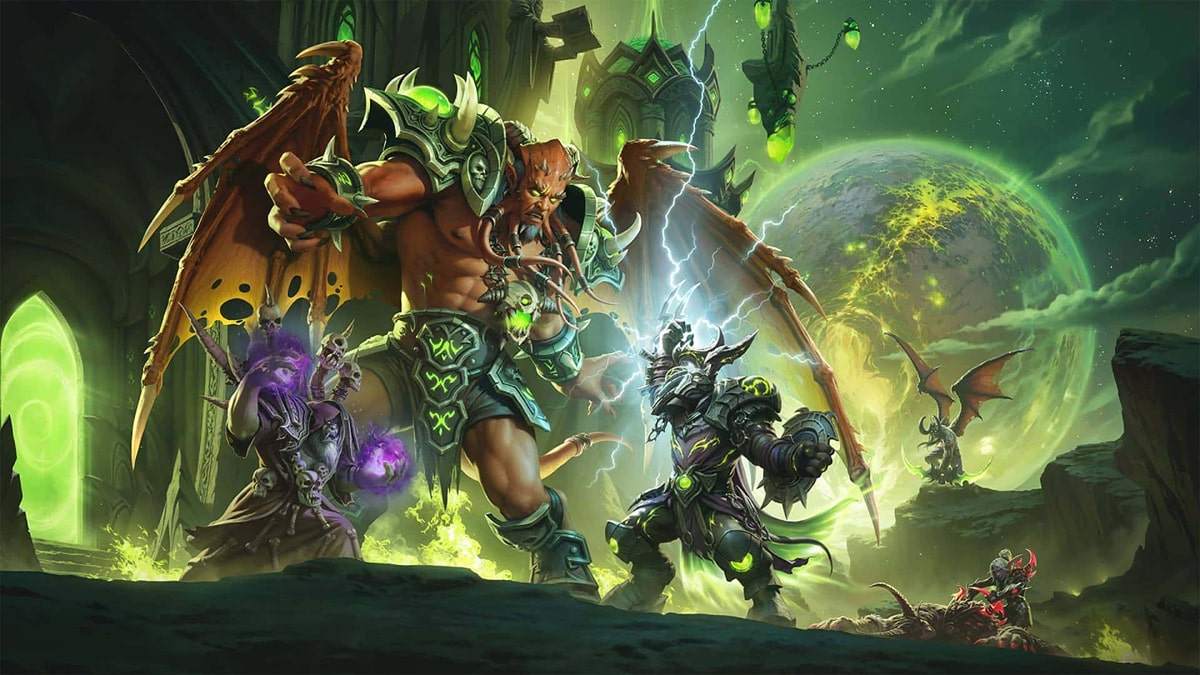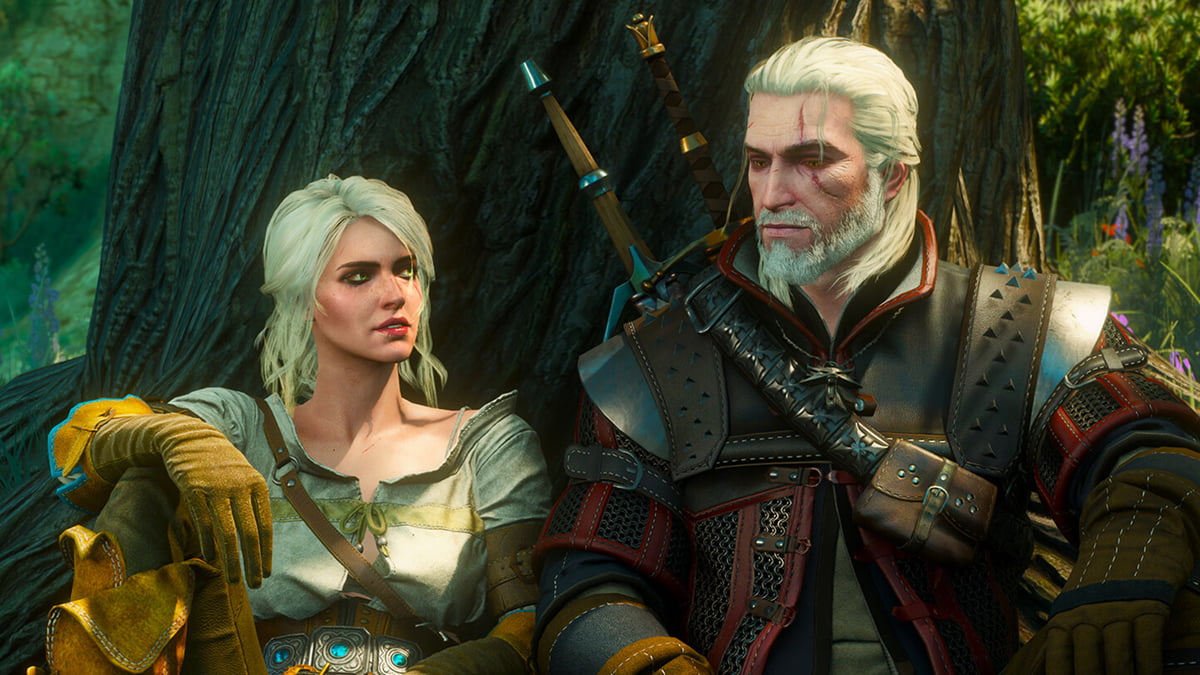You can trust VideoGamer. Our team of gaming experts spend hours testing and reviewing the latest games, to ensure you're reading the most comprehensive guide possible. Rest assured, all imagery and advice is unique and original. Check out how we test and review games here
It’s the font. It looks as if someone has taken the title ‘Alan Wake’, just as it appeared on the box, and squeezed it, with obsessive affection – the A more slender and stretched, the gut of the W girdled in tight. It isn’t just the font. It’s what’s in in the font: a silhouette I would recognise anywhere, lurking in the letters. There can be little doubt that the upcoming DLC chapter for Control, entitled ‘WE’, is an Alan Wake crossover – the first of its kind for developer Remedy, whose games share a dense undergrowth that glitters with Easter eggs but never quite encroach on one another. How odd that, despite the coy nudges and clues seeded in separate games, they have never truly crossed over.
But here it is, and undeniable: a torch-bearing figure up top – the writer we all miss, in all his fogbound frustration – and below, in a blood-hued void, floats Jesse, surely ready to mount a rescue. I can imagine the trailer now, the letters A,W, and E expanding, while new ones mist into place, forming not ‘Altered World’ Event but simply ‘Alan Wake’. He’s already firmly a part of the furniture in the Federal Bureau of Control; there are documents, not particularly hidden, detailing the power of Alan’s imagination and the way that those collectible coffee thermoses – little blue beacons of reassurance, out there in the woods – were in fact Altered Items. What’s more is that AWE could very cutely set up the Alan Wake sequel that everyone has been clamouring for.
But what more could this point to? I have a dark vision of Remedy introducing expansion after expansion: a patchwork of pieces from all the studio’s previous games. Granted, this would require some purchasing power; Remedy would need the rights to Max Payne from Rockstar, and Quantum Break would have to slip through Microsoft’s clutches, but we can always dream. And there is such kindling for the firing of one’s imagination. I can’t be the only one to have thought, while playing Control, that the enormous sign marked ‘NYC Subway’, in that cavernous room towards the end of the game, might have meandered away to the underworld of Max Payne’s New York? What a joy it would be to step through into Roscoe Street Station, just before Max’s partner, Alex, is murdered – or perhaps it would turn out, for some twisted reason, that Jesse was the killer.
Then there’s Jack Joyce, the hero of Quantum Break, who, it would inevitably turn out, was pulling the levers behind every swerve of the story, owing to his knack for twisting time out of all recognition. I can see Joyce being used to fuse together the exposed wiring of a wayward plot – a sort of glutinum ex machina. We would be looking at a shadowy, B-movie version of The Avengers. A super team comprised of Joyce, Jesse, Max, and Alan: time-bending, telekinesis, bullet-time diving, and all of it dreamed up by a dishevelled soul behind a typewriter under a lake. I can also imagine, when all pep has been wrung from the formula, that Remedy might dust off Death Rally. Each of the heroes wakes up behind the wheel of a car, guns soldered to the sides, in a race to save the universe, for no discernible reason.
There is an inherent danger with this approach. Before long, any future Remedy games might lose the knack of standing on their own two feet, with time-warping, dimension-hopping silliness. We may well get to the stage, where we can’t get away from pesky cameos; Alan will barely be able to make it to his desk without a visit from a young Max, diving sideways through the window, off his head on pills, for a coffee-fuelled catch up. By the time we get to Control 3: Corporate Team-Building Exercise, Jesse will be unable to get away from Jack Joyce’s incessant whining and disrespect for scheduled meeting times, despite the many clocks that adorn the walls. When Max Payne is rescued from his beached retirement, he’ll be subjected to a barrage of manuscript pages, arriving via secure courier, with requests for ‘honest but constructive feedback.’
I don’t know. The more I think about this AWE, the more it seems to me that it could open a door that’s difficult to close. And while I relish the thought of a crotchety, second-phase Remedy Shared Universe, in which the key players are disgruntled and desperate for a game of their own, I might grow to resent it. I may yearn for the time when the wink of an Easter egg was enough. Fortunately, this scenario that I’ve dreamt up, enthused over, grown weary of, and looked longingly past, will likely not happen – barring any sort of Alteration to World Events, namely the numerous copyright problems I’ve laid out, but also the inclination to effectively sink three to four franchises for the sake of a mad, power-drunk dream.
Control
- Platform(s): PC, PlayStation 4, PlayStation 5, Xbox One, Xbox Series S/X, Xbox Series X
- Genre(s): Action, Adventure, Shooter




